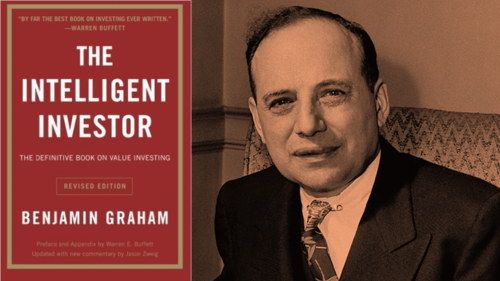Some believe value investing has been out of fashion for almost two decades now, with growth stocks outperforming the markets regularly. So, is value investing dead and buried? Keep reading to find out.
About Value Investing
Value investing involves buying stocks that are trading significantly below their intrinsic value.
This strategy relies on the fact that greed and fear often make traders irrational, which is why some securities are priced differently from what they are truly worth.

However, these factors will not impact the stock price forever. In the long term, a stock could come back to its true value, as long as markets are efficient.
This process (of returning back to true value) is called “mean reversion”. It implies that there is an opportunity to buy a security when it is underpriced and sell it when it reaches back to its actual value.
This is the essence of value investing. Traders who use this method buy a stock when it is lower than its intrinsic value, and sell it when it becomes higher. However, the key challenge is determining “intrinsic value.” So how do you determine the true value of a stock?
Value investors use various metrics to define it, such as the price-to-earnings ratio, price-to-book ratio, debt-to-equity ratio, and so on.
Another key feature of this method is that it typically works on a longer investment horizon: it is not a day trading or short-term strategy. Studies have shown that this approach has done consistently well over the last century, beating out index returns on major stock markets.
Related: Value Stocks: What Are They And How To Find Them
What Is the Opposite of Value Investing?
Growth and value investing are diametrically opposed when it comes to stock selection. Growth stocks are usually priced higher than their intrinsic value.
Also, growth investors focus on companies that have high earnings potential and are willing to buy the security even at a premium, hoping that it will rise even further.
An important segment of growth investing is “emerging” growth companies, which haven’t yet shown much in returns but have excellent potential in the future.

Some examples could be cutting-edge technology companies in the field of augmented reality, blockchain, or artificial intelligence.
Growth portfolios can continue to do well even if the economy is doing poorly. This mainly depends on if these companies have intrinsic growth potential and are not merely riding a growth bubble.
Often, however, growth portfolios can take a hit during economic downturns. Another important difference is that growth stocks are usually more volatile than the rest of the market, whereas value stocks are less so.
Who Is the Father of Value Investing?
Benjamin Graham is widely considered the father of value investing. One of Graham’s foremost disciples is Warren Buffett, who built his entire wealth by applying the same principles. We’ll take a closer look at Graham, Warren Buffett, and other notable value investors in a bit, so stay tuned.
Let’s return to value investing.
Is Value Investing Dead?
Value investing is not dead. However, some research suggests that the returns from this strategy have diminished in the past few years. One of the reasons why is that these methods have become too mainstream.
If too many people are trying to buy underpriced stocks, the market factors in this additional demand, which can bring a value stock closer to its intrinsic value.

This creates a vicious cycle that lowers the return that can be gained from value stocks. Ironically, if the interest in value stocks faded further, it’s possible that this type of investing could once again start to give high returns.
Do Value Stocks Outperform the Market?
Value stocks have a tendency to outperform the market when it’s declining, whereas growth stocks do well when the market is rising. When markets are down, investors look for stable and certain cash flows in a stock.
However, when the market is growing, investors are more inclined to put their money where the growth is higher.
What Sectors Are Good for Value Investing?
Sectors such as financials, consumer staples, energy, and industrials are largely composed of value-driven stocks. These sectors have low volatility and steady cash flows. Moreover, these businesses maintain steady demand — regardless of current economic performance.
Are US Value Stocks Overvalued?
No, US value stocks are not generally overvalued as of now. There are some sectors that are staples in value investing that have come close, however.
Energy is typically a stable sector for value stocks. But oil is an exception. Apart from oil, other stocks are also leading the surge in value indexes, such as those in the consumer goods and healthcare sectors.
As of now, the Morningstar U.S. Large Value Index’s average price/fair value ratio is exactly 1. Last year it breached this mark and was overvalued.
Related: The 8 Best Green Energy Penny Stocks
The 5 Best Clean Energy Stocks Under 5 Dollars
The 13 Best Energy Storage Stocks
The 10 Best Renewable Energy Penny Stocks
Are Value Stocks Good During Inflation?
Yes, historically, value stocks have done well during periods of high inflation. They often have strong, steady cash flows that persevere during down markets.
On the other end of the spectrum, growth stocks have little to show for current cash flow but have a lot of promise for the future. This is why when inflation rises, value stocks become more attractive while growth stocks are less sought after.
Famous Value Investors
Many value investors have seen immense success, but none more so than Benjamin Graham, Warren Buffett, and Michael Lee-Chin.
Benjamin Graham
As mentioned, Benjamin Graham is often credited with being the father of value investing. He was making about $500,000 every year by the age of 25 through the stock market.
However, when the markets crashed in 1929, his entire earnings were wiped out. Through value investing, he picked himself up and rebuilt his wealth.

He then transcribed his learnings from the crash into a book titled Security Analysis.
It shared the fundamentals of value investing, including how to analyze the true value of a stock. The book also explored that the intrinsic value of any security is derived from its assets, dividend payouts, and earnings.
In 1949, he authored his second book, The Intelligent Investor: The Definitive Book on Value Investing.
This book echoed the ideas of Security Analysis but added loads of other insights as well.
It shared ideas such as not following the herd while investing, holding a portfolio of 50% stock and 50% bonds (hedging), using market volatility to one’s advantage, and staying away from day trading.
He also inspired a generation of value investors that includes Warren Buffett, Irving Kahn, Walter Schloss, and Christopher Browne.
Warren Buffett
Dubbed the Oracle of Omaha, Warren Buffett is the poster child of value investing and one of the richest men in the world. He follows the Benjamin Graham style of investing, focusing on stocks that are unjustifiably undervalued and buying them up.

However, there is one key difference: Warren Buffett is not interested in selling a stock when it reaches its true value. Instead, he seeks ownership in companies that have long-term potential for high earnings.
His company, Berkshire Hathaway, currently holds stakes in some of the biggest names in the stock market, such as Apple Inc, Coca-Cola, and Bank of America.
Related: How To Contact Warren Buffet: Getting in Touch with Berkshire Hathaway’s CEO
Michael Lee-Chin
Michael Lee-Chin is a Canadian billionaire with a net worth of $1.8 billion.
As a young mutual fund salesman, Michael wanted to figure out a way to make wealth. He invented a five-point formula for finding successful wealth generators:
These companies must:
- Own a concentrated portfolio of high-quality businesses.
- Understand the businesses in their portfolio.
- Use other people’s money prudently to create their wealth.
- Ensure that their businesses are in industries with strong, long-term growth.
- Hold their businesses for the long term.
Using his own code, Lee-Chin borrowed nearly half a million dollars. He put all of it in a single company, where he made seven times the return on investment in just four years.

Next, he used the proceeds and invested in a small mutual fund company, which he grew from an AUM of 800,000 to $15 billion. That company was later sold to Manulife Financial.
Today, Michael is the owner of Portland Holdings, a company that owns stakes in several firms across North America and the Caribbean.
Who Is the Most Famous Value Investor?
Warren Buffett is by far the most famous value investor in the world. His success has inspired thousands of investors to consider value investing as a means to grow wealth.

When evaluating a company, Buffett uses these parameters to decide if it is undervalued:
- What is the company’s return on equity?
- What is its Debt-to-equity ratio?
- What is the profit margin?
- Is it public for at least ten years or more?
- Does it have significant market capitalization?
- Is it reliant on a single commodity?
- Is the stock available for less than its intrinsic value?
Buffett’s strategy is much more nuanced, but this is the foundation of his approach.
Should I Buy Growth or Value Stocks Now?
Given that we are currently in an economic downturn and are seeing a considerable rise in inflation, value stocks might be a viable option. This doesn’t mean that you need to kick all other investments to the curb. There’s still room for growth stocks in a portfolio.
Is Value Riskier Than Growth?
Both value and growth investing have their risks. It is difficult to say for certain which approach is riskier.
While inherently, value stocks appear less risky than growth stocks — they do suffer from business–cyclical risk in the long run. This is just technical jargon for the fact that value stocks can drop in value if the market collapses in a recession or during periods of poor economic growth.

On the other hand, growth stocks have their own unique long-term risk — bubble collapse.
This happens when a group of growth stocks in a particular sector all rise much higher than reasonable valuations, creating a positive bubble around them.
The tech bubble burst of the 90s is a prime example of this phenomenon. During this time, many growth stock investors who bought into the bubble lost a lot when it burst.
To conclude, both types of investing have their own long-term risks and rewards, and neither can be said to be definitively less risky.
When Was the Last Time Value Outperformed Growth?
Value has outperformed growth since 2020. In a long-term analysis, value stocks have almost always outpaced growth. However, there were intermittent periods where this was not the case. For example, in 2007 and 2020, growth outpaced value.
Post the 2008 financial crisis, there was a decline in value stocks across markets and sectors. Many investors leaned into growth stocks and unseated value as the king of long-term gains.
One reason for this was increasing interest in tech companies. During this period, many emerging tech companies created entirely new industries, which led to absurd growth.
However, with inflation climbing and growth stocks being viewed as grossly overpriced, value portfolios are making a comeback and might continue to rise for the next few years.
Related: When Do Value Stocks Perform Best?
Should I Switch to Value Stocks?
Given rising inflation and the looming threat of a sustained economic downturn, it could be a wise idea to switch to value stocks right now.

However, it is important to put a caveat here — certain growth stocks will continue to do well even despite adverse economic conditions. There are also growth stocks that dipped during the downturn that may rebound, which means you could get in at a steep discount.
Depending on your risk appetite and the way you want to put your money, you can choose either value or growth investing at any time.
Related: Do Value Stocks Do Better In Inflation?
Final Thoughts
Value investing has a certain appeal that is hard for many to overlook. Unlike more speculative strategies, there’s actually a tangible formula to follow that has proven successful over the years.
If you’re not looking to gamble your hard-earned cash and prefer technical analysis, value investing could be a great way to grow a portfolio. Moreover, value stocks have historically outperformed major market indexes and growth stocks.
As inflation rears its ugly head again, and markets become tougher, it might be time to reevaluate portfolios and add a few value stocks to them.
You might also like:
The 6 Best Small Cap Value Stocks To Buy
Do Value Stocks Have High Dividends?
Everything About Value Stocks And More!


 Tags:
Tags:










